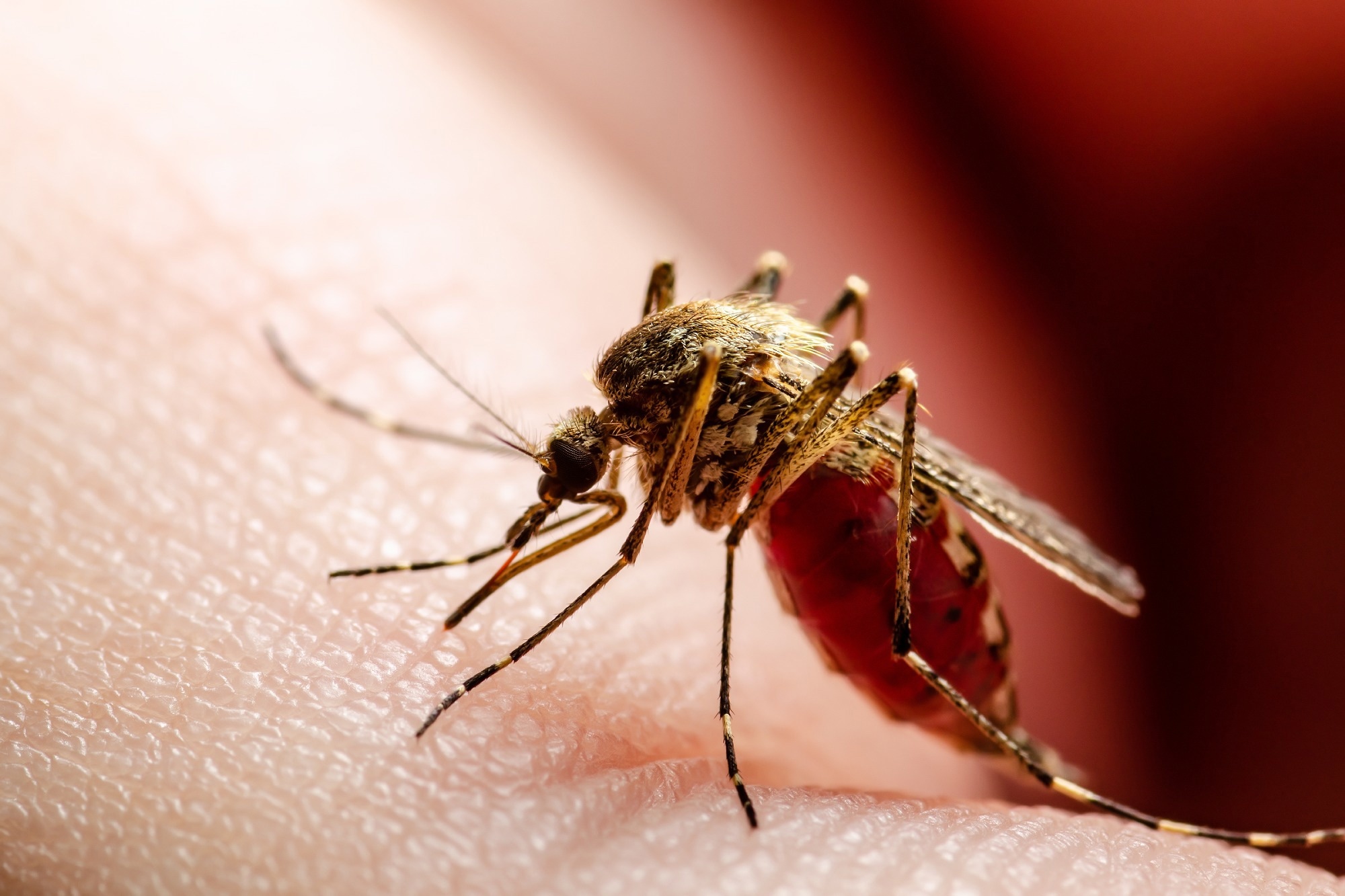Reviewed by Lauren HardakerOct 27 2025
Mosquito-borne illnesses claim the lives of hundreds of thousands of people annually, but researchers have found an unexpected partner in the battle against mosquito-borne infections: a fungus that emits a floral scent.
 Image credit: nechaevkon/Shutterstock.com
Image credit: nechaevkon/Shutterstock.com
Using the mosquito's innate attraction to flowers, a global team of researchers has developed a novel strain of Metarhizium fungus that mimics the sweet fragrance of flowers, tempting the bloodsucking insects to their demise.
The team discovered a specific fungi that releases a fragrant chemical known as longifolene to attract insect prey. They developed a fragrance that is lethal to mosquitoes, offering a potential new tool for controlling malaria, dengue, and other life-threatening vector-borne diseases, that are difficult to manage with chemical pesticides. In a recent Nature Microbiology publication, the researchers described their approach and its effectiveness in reducing mosquito populations.
Mosquitoes need flowers because they provide nectar, a crucial source of food for them, and they are drawn to flowers through their scents. After observing that some types of fungi could trick mosquitoes into thinking they were flowers, we realized we could turbo-charge the attraction by engineering fungi to produce more longifolene, a sweet-smelling compound that’s already very common in nature. Before this study, longifolene wasn’t known to attract mosquitoes. We’re letting nature give us a hint to tell us what works against mosquitoes.
Raymond St. Leger, Study Co-Author and Distinguished University Professor, Entomology, University of Maryland
St. Leger noted that the floral-scented fungus provides a simple method for mosquito control that requires little to no training or specialized expertise.
When the fungus spores are placed into a container, whether indoors or outdoors, longifolene is released immediately and gradually, maintaining effectiveness for several months. Mosquitoes that come into contact with the fungus become infected and die within a few days.
In laboratory tests, the fungus killed 90 to 100 % of mosquitoes, even in large spaces with competing scents from humans and actual flowers. While the fragrant fungus is lethal to mosquitoes, it poses no harm to humans.
The fungus is completely harmless to humans as longifolene is already commonly used in perfumes and has a long safety record. This makes it much safer than many chemical pesticides. We’ve also designed the fungus and its containers to target mosquitoes specifically rather than any other insects and longifolene breaks down naturally in the environment.
Raymond St. Leger, Study Co-Author and Distinguished University Professor, Entomology, University of Maryland
In contrast to chemical alternatives to which mosquitoes have slowly developed resistance, this biological method may be virtually impossible for mosquitoes to outwit or evade.
If mosquitoes evolve to avoid longifolene, that could mean they’ll stop responding to flowers. But they need flowers as a food source to survive, so it would be very interesting to see how they could possibly avoid the fungus yet still be attracted to the flowers they need. It’ll be very difficult for them to overcome that hurdle, and we have the option of engineering the fungus to produce additional floral odors if they evolve to specifically avoid longifolene.
Raymond St. Leger, Study Co-Author and Distinguished University Professor, Entomology, University of Maryland
This fungal technology stands out for its practicality and low production cost.
Other Metarhizium species are already produced globally using inexpensive and readily available materials such as chicken manure, rice husks, and wheat byproducts.
Because it is easy and inexpensive to cultivate, this fungus could help reduce mosquito-related disease deaths in numerous regions, particularly in economically disadvantaged countries in the global south.
The search for effective new strategies against mosquitoes is becoming increasingly urgent. St. Leger cautions that in the future, mosquito-borne illnesses that are currently confined to tropical areas could pose threats to new regions, including the United States.
As global temperatures rise and weather patterns become more unpredictable, disease-carrying mosquitoes have started to invade new territories beyond their usual environments.
“Mosquitoes love many of the ways we are changing our world. Right now, we’re hoping to use these approaches in Africa, Asia, and South America. But one day, we may need them for ourselves,” said St. Leger.
St. Leger and his team are conducting extensive outdoor trials of their mosquito control technique, aiming to obtain regulatory approval.
“It’s not as if you’re going to necessarily find a silver bullet to control mosquitoes everywhere, but we’re trying to develop a very diverse and flexible set of tools that people in different parts of the world can use and choose from. Different people will find different approaches work best for their particular situation and the particular mosquitoes they’re dealing with. In the end, our goal is to give people as many options as possible to save lives,” said St. Leger.
Fighting Mosquitoes with Fungi
Video Credit: UMDscience/Youtube.com
Source:
Journal reference:
Tang, D., et al. (2025) Engineered Metarhizium fungi produce longifolene to attract and kill mosquitoes. Nature Microbiology. doi.org/10.1038/s41564-025-02155-9